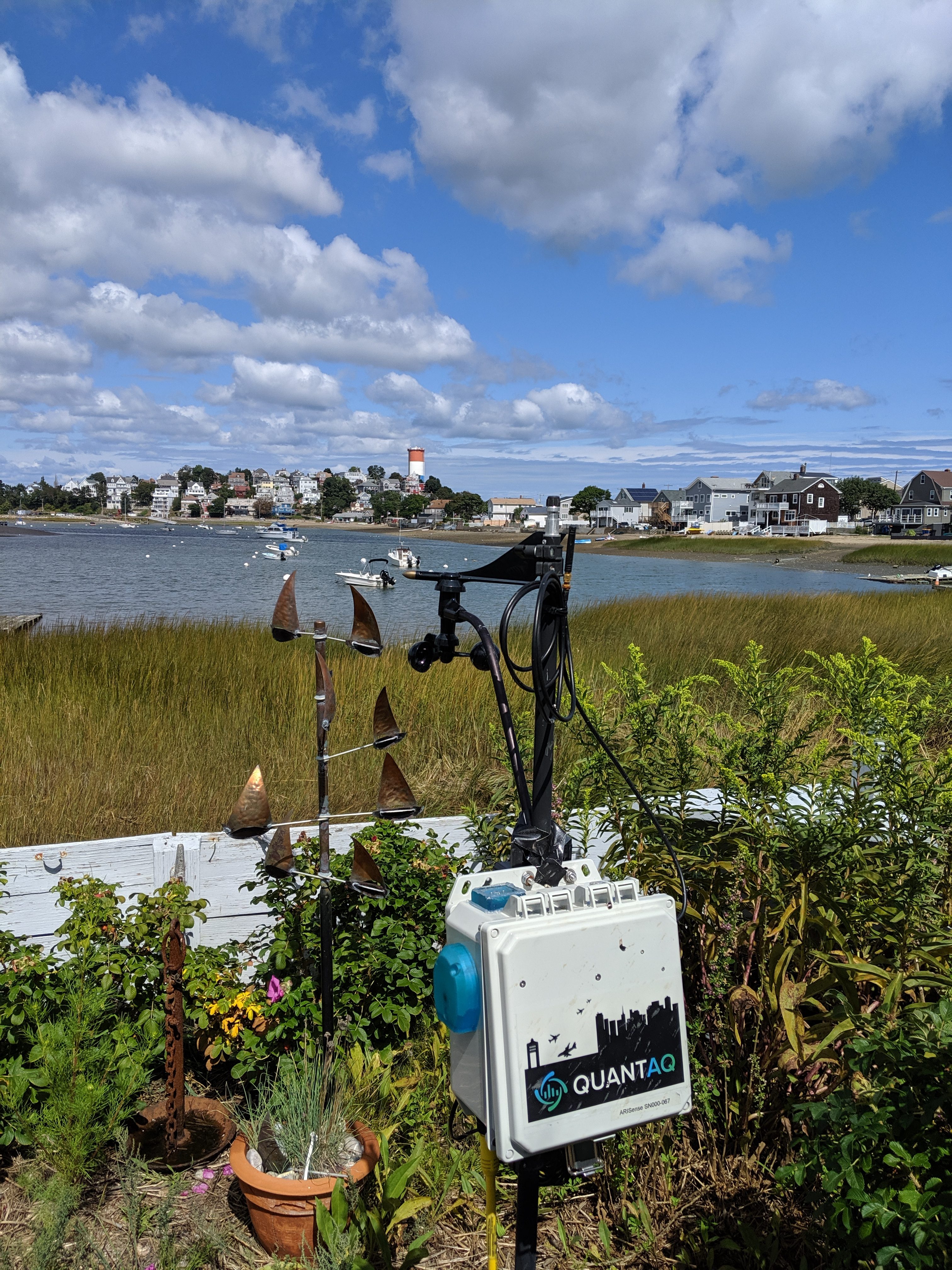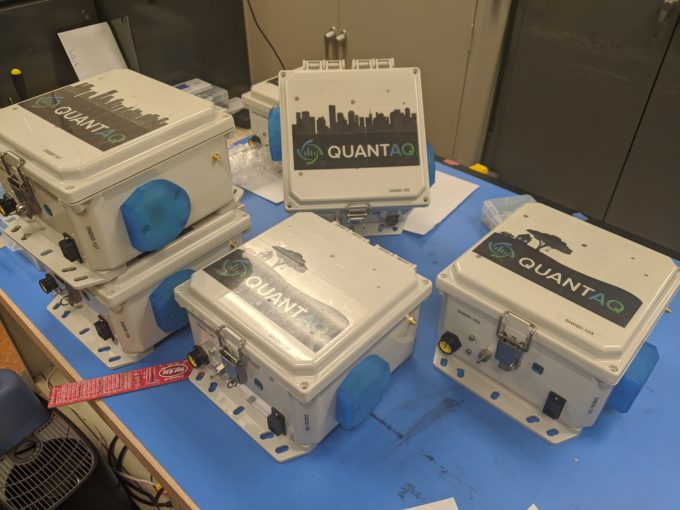Here’s the problem: we don’t have the extensive air quality information we need to reduce pollution. Existing air quality sensors are the size of a trailer, meaning they’re stationary, and cost roughly $1 million apiece. They’re overly complicated, requiring significant capital and labor to maintain and operate, and they only deliver hourly or daily data.
Due to all these drawbacks, there aren’t enough air quality sensors in place. That means we typically only have regional data, if any.
Enter QuantAQ. Built by two atmospheric chemists, QuantAQ’s air quality sensors are smaller than a microwave, cost a fraction of traditional pollution measurements, offer continuous rather than hourly data, and are simple to install and operate. Being small and affordable means the QuantAQ sensors can be distributed throughout an area, gathering and sharing detailed, minute-by-minute data on the neighborhood level.
“There are many, many places around the world where zero measurements of air pollution happen,” says Eben Cross, co-founder and CTO of QuantAQ. “With our systems, we’re beginning to fill in these air quality data gaps.”
The devices measure many of the EPA’s air quality regulated pollutants, meteorology, and particles—which are from combustion sources, for example, including engines, stoves, candles, cigarettes, and more.
 Better data is more actionable data. For instance, QuantAQ’s team explains that a handful of heavy-duty vehicles are responsible for the majority of vehicle transportation emissions. QuantAQ’s data could identify those sources, providing valuable information that could drive policy decisions such as fixing those vehicles.
Better data is more actionable data. For instance, QuantAQ’s team explains that a handful of heavy-duty vehicles are responsible for the majority of vehicle transportation emissions. QuantAQ’s data could identify those sources, providing valuable information that could drive policy decisions such as fixing those vehicles.
“We can take the data to leadership and politicians,” Cross says. “We can create unambiguous data stories that ought to inform legislative action.”
Having neighborhood-level air quality data could also help individuals make decisions—choosing the cleanest walking or running routes, for example.
A third application of this technology is during climate emergencies. Before QuantAQ incorporated, Hagan and his fellow researchers from MIT deployed similar technology in Hawaii after the 2018 Kilauea volcano eruption. That’s when installation speed, real-time data, and movability was crucial—Hawaii didn’t have the time or resources to install the large-scale sensors, and one of its existing, non-mobile sensors was covered by lava.
“There was an active evacuation in place and they needed to be able to measure what was happening in real time,” QuantAQ Co-founder and CEO David Hagan says. “We deployed a bunch of sensors to help inform those decisions.”
QuantAQ is piloting about 125 sensors across seven countries. The company is working with the EPA, academic groups, and others to deploy the devices. QuantAQ has also installed its sensors near Boston’s Logan Airport to measure aircraft emissions.
Cross and Hagan met in 2013 on a field study in Alabama. They ended up working together at an MIT lab and spun out QuantAQ in 2019. In the next year, the QuantAQ team aims to raise its seed round, expand its team, and have 200 sensors out in the world.
The team came to Greentown Labs this winter for its unique prototyping lab and flexibility around evolving space needs. Hagan and Cross say they’re looking forward to tapping into the Greentown community’s collective knowledge.
“We know the science better than anyone in the world, but when it comes to designing a product that will scale, we’re not veteran entrepreneurs,” Hagan says. “I think one of the biggest advantages of being here is being around other people in a similar situation who you can ask questions. Even for hiring—hiring people outside of your area of expertise is pretty challenging, so being able to ask someone who is a mechanical engineer to help come interview someone is super useful.”
Greentown Labs is a community of bold, passionate entrepreneurs creating solutions for today’s biggest climate and environmental challenges. Located in Somerville, Mass., Greentown Labs is the largest cleantech incubator in North America, operating a 100,000 sq. ft. campus comprised of prototyping and wet lab space, shared office space, a machine shop, electronics lab, and a curated suite of programs and resources. Greentown Labs is home to more than 100 startups and has supported more than 250 since its inception.

